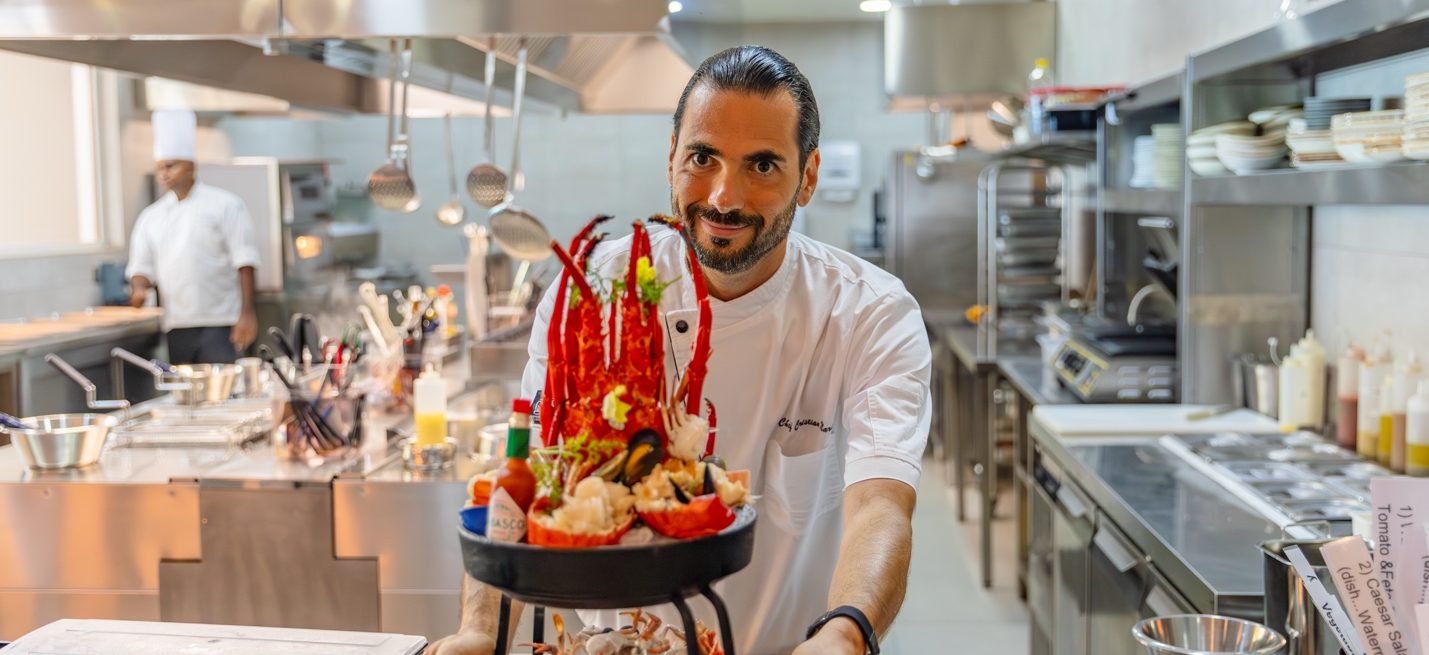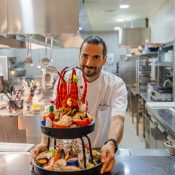Before the Orders Come In, The Leadership Begins
3 Min Read By Cristian Marino
Planning ahead isn’t just a task. It’s the heartbeat of a great kitchen.
This article is inspired by my book, 10 Rules of the Chef in the Modern Era. While the book offers a practical and concise guide, here I’d like to dive deeper into one of its core principles—highlighting how thoughtful preparation shapes true leadership in the kitchen.
Every chef knows the feeling: the dinner service is about to begin and there’s a particular tension in the air. Not necessarily because something has already gone wrong, but because something always could. And when it does, you quickly discover whether your team is truly prepared.
I started writing these '10 Rules' on a board outside my office as daily reminders. Over time, these rules became the heart of the book: a simple yet powerful toolkit for culinary leadership and effective teamwork.
Real readiness doesn’t start with the first incoming ticket. It starts hours earlier, in a clearly communicated morning briefing, in mise en place that's been double-checked, and in roles that have been assigned with care. Planning ahead isn’t about control—it’s about clarity. It’s about calm.
In today’s kitchens, planning isn't a secondary task; it’s leadership in action. It demonstrates respect for your team, your craft, and your guests. When each team member knows exactly what’s expected of them before the heat of service, chaos becomes choreography, and stress transforms into rhythm.
This rule becomes particularly crucial in high-pressure scenarios such as banquets, outside catering, or large-scale events, where precision and timing can determine success or failure. Yet, the real value of planning isn’t merely logistical—it’s emotional. When people feel truly prepared, they remain confident and grounded. This doesn’t simply make them better cooks; it makes them stronger professionals and more assured individuals.
In my 25-year culinary journey, which has included cruise ships, five-star hotels, and remote island resorts, I’ve witnessed firsthand how inadequate planning can undermine even the strongest of teams. Conversely, I’ve seen how thoughtful preparation transforms ordinary cooks into extraordinary collaborators.
Good planning doesn’t create rigidity; it fosters agility. It’s the reason you can pivot seamlessly when a supplier fails to deliver or when unexpected VIP guests arrive without notice. It’s the difference between reacting impulsively and responding strategically. Good preparation enables your team to look at you with trust in moments of crisis, knowing you've got them covered.
Because planning ahead doesn’t just protect the quality of the food.
It protects the people preparing it.

Q&A with Cristian Marino
What does “planning ahead” truly mean to you?
It means preparing your team emotionally and practically before the storm hits. A well-crafted plan speaks louder than words—it shows your team you genuinely care about their success and well-being.
Why did you include this concept in your book?
Because true professionalism always begins with preparation. A calm, efficient kitchen relies on careful planning, not just excellent ingredients.
What planning mistake do young chefs frequently make?
They often confuse being busy with being prepared. Genuine planning helps you stay focused, efficient, and effective.
What’s one thing you always include in your planning?
Contingencies. Something always goes wrong—and when it does, I want to be calm, composed, and ready to adapt.
When and where did the idea for this book come to life?
The idea emerged in the Maldives, where I led a diverse and passionate culinary team at a luxury island resort. With many cultures and cooking styles converging in one kitchen, I realized we needed a common language—a clear set of guiding principles. I started writing these “10 Rules” on a board outside my office as daily reminders. Over time, these rules became the heart of the book: a simple yet powerful toolkit for culinary leadership and effective teamwork.


